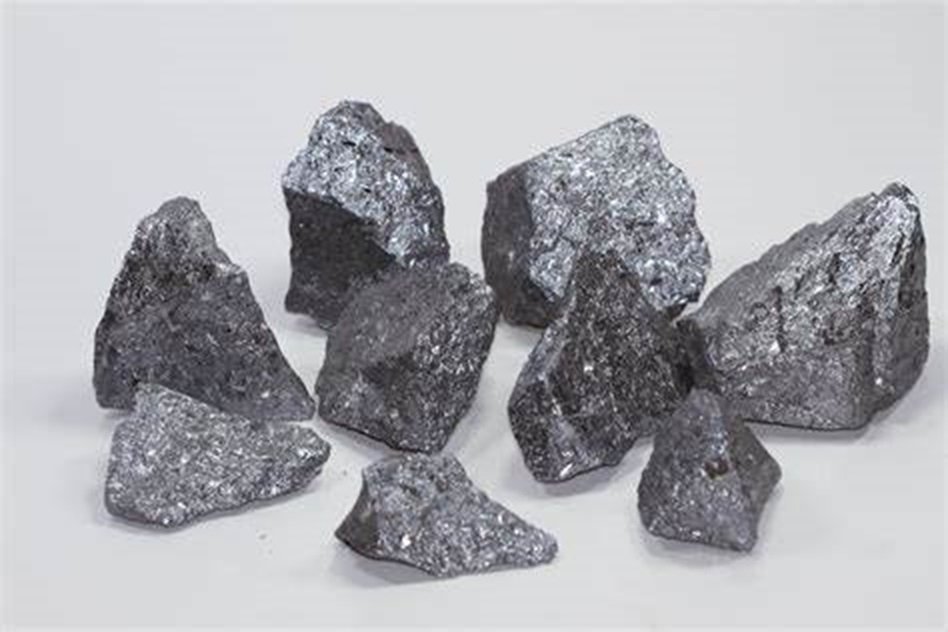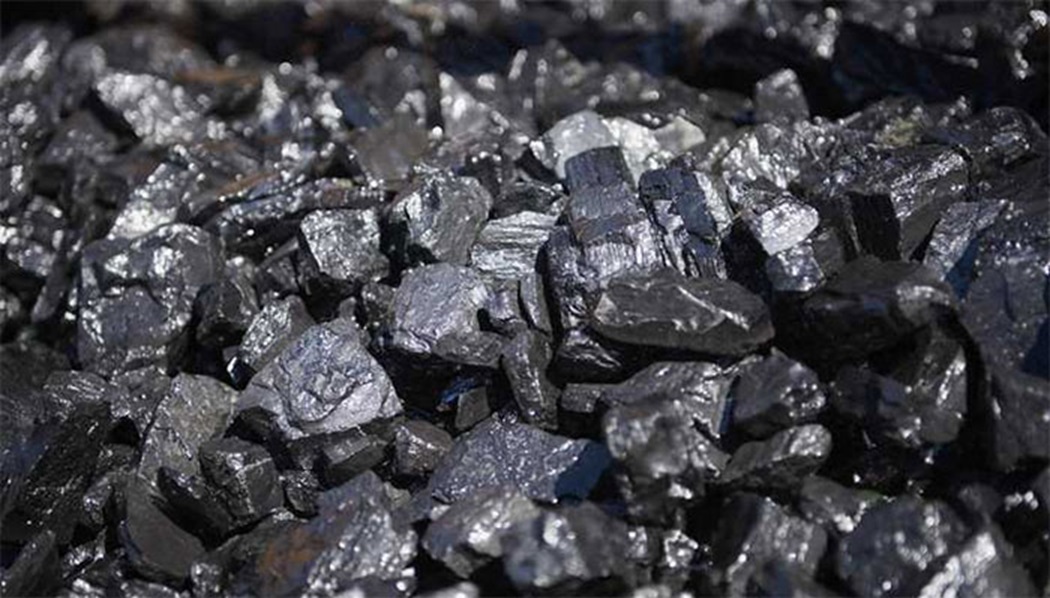We unleash your business potential by maximize the business innovation.
Send EmailMetallic Silicon, Elemental Silicon, Crystal Silicon, Ferrosilicon, Silicon Metal, 7440-21-3
Metallic silicon, also known as silicon metal, is a material widely used in various industries and is indispensable for foundries and steel production facilities. Metallic silicon is ideal for applications requiring high-temperature resistance and thermal conductivity.
Physical and Chemical Properties:
-
Melting Point: 1414 °C
-
Boiling Point: 3265 °C
-
Density: 2.33 g/cm³
-
Color: Gray
-
Magnetic Properties: Non-magnetic
-
Electrical Conductivity: High
Applications:
-
Aluminum Alloys: Metallic silicon is alloyed with aluminum to improve the castability and strength of the metal.
-
Steel Production: Used in steel production for its ability to prevent oxidation and enhance the structure of the steel.
-
Semiconductor Industry: Used in the production of semiconductor devices.
-
Chemical Industry: Acts as a catalyst in various chemical processes.
CAS Number: The CAS number for metallic silicon is 7440-21-3.
Other Names:
-
Silicon
-
Elemental Silicon
-
Crystal Silicon
-
Ferrosilicon
-
Silicon Metal
Metallurgical Grade Silicon (Metallic Silicon) is a high-purity form of silicon, primarily used in metallurgy, electronics, and solar energy industries. Silicon is one of the most abundant elements on Earth, commonly found in the form of quartz (SiO₂). Metallic silicon is produced by chemically reducing quartz through high-temperature processes. Below is detailed information about metallic silicon:
1. Properties of Metallic Silicon:
-
Chemical Formula: Si
-
Appearance: Gray-black, crystalline solid.
-
Melting Point: 1414°C
-
Boiling Point: 3265°C
-
Density: 2.33 g/cm³
-
Hardness: 7 on the Mohs scale (quite hard).
-
Conductivity: Semiconductor properties.
2. Production of Metallic Silicon:
Metallic silicon is produced by reducing quartz sand (SiO₂) with carbon (usually coal or coke) at high temperatures. This process is carried out in electric arc furnaces. The reaction is as follows:
SiO2+2C→Si+2COSiO2+2C→Si+2CO
-
Raw Materials: Quartz sand and carbon (coal or coke).
-
Process Temperature: 1900-2000°C.
-
Purity: Metallurgical grade silicon typically has a purity of 98-99%.
3. Applications of Metallic Silicon:
Metallic silicon is used in various industrial applications. Its primary uses include:
a. Aluminum Industry:
-
Used as an additive in aluminum alloys. Silicon improves the strength and castability of aluminum.
b. Chemical Industry:
-
Used in the production of silicon compounds (silicone rubber, silicone oils, silicone resins).
c. Solar Energy Industry:
-
High-purity silicon is used in the production of photovoltaic cells (solar panels).
d. Electronics Industry:
-
Used as a semiconductor material. It plays a critical role in the production of transistors, diodes, and integrated circuits.
e. Steel and Foundry Industry:
-
Used as a deoxidizer in steel production.
-
In foundry processes, silicon improves the properties of iron and steel alloys.
4. Producers of Metallic Silicon:
Metallic silicon is produced by many manufacturers worldwide. Key producing countries and companies include:
a. China:
-
China is the world's largest producer of metallic silicon.
-
Major companies: Ferroglobe, Hoshine Silicon, Xinjiang Daqo New Energy.
b. Norway:
-
Elkem: A Norway-based company that produces metallic silicon and silicon-based products.
c. USA:
-
Dow Corning: Produces silicon-based products and metallic silicon.
-
Wacker Chemie: A Germany-based company with production facilities in the USA.
d. Brazil:
-
Rima Industrial: A Brazil-based company that produces metallic silicon.
5. Import and Export of Metallic Silicon:
-
China is the global leader in both production and export.
-
Norway, USA, and Brazil are also significant exporters.
-
Turkey typically imports metallic silicon from China and Europe.
6. Pricing of Metallic Silicon:
-
The price of metallic silicon fluctuates based on raw material costs, energy prices, and demand conditions.
-
Between 2021 and 2023, metallic silicon prices experienced significant volatility due to the energy crisis and supply-demand imbalances.
7. Environmental Impact of Metallic Silicon:
-
The production of metallic silicon involves high energy consumption and carbon emissions.
-
Carbon monoxide (CO) gas released during production contributes to environmental pollution.
-
Recycling and energy efficiency are crucial for reducing environmental impacts.
Summary:
Metallic silicon is a material obtained by reducing quartz sand with carbon. It is widely used in the aluminum, chemical, solar energy, and electronics industries. China, Norway, and the USA are the leading global producers. Turkey typically imports this product and uses it primarily in the aluminum and foundry industries.
✅ Why Silicon Metal Is Preferred
| Reason | Explanation |
|---|---|
| High Purity Availability | Can be refined to 99.99%+ purity, essential for electronics and solar cells. |
| Semiconductor Properties | Its electrical behavior makes it ideal for transistors, microchips, and diodes. |
| Alloy Enhancement | Improves casting ability and mechanical strength in aluminum alloys. |
| Chemical Reactivity | Used to produce silane gas and silicone-based chemicals. |
| Thermal Stability | Remains stable at high temperatures, suitable for electronics and refractories. |
| Photovoltaic Compatibility | Dominates solar panel production as polycrystalline or monocrystalline silicon. |
| Global Trade Availability | Widely sourced from China, Brazil, Norway, and other major producers. |
❌ Why Silicon Metal May Not Be Preferred
| Reason | Explanation |
|---|---|
| Energy-Intensive Production | Requires high temperatures and electricity (carbothermal reduction). |
| Brittle Structure | Pure silicon is fragile and prone to cracking under mechanical stress. |
| High Purity Cost | Electronics-grade silicon is expensive to produce. |
| Lower Corrosion Resistance | More prone to oxidation than aluminum or titanium in humid environments. |
| Emerging Alternatives | Materials like germanium, graphene, and carbon nanotubes offer niche advantages. |
| Limited Machinability | Hard and brittle nature makes precision shaping difficult. |
🔒 Industries Where Silicon Metal Is Mandatory
| Application Area | Why It's Irreplaceable |
|---|---|
| Semiconductors & Microchips | Silicon is the backbone of all integrated circuits; no viable substitute exists. |
| Solar Panel Manufacturing | Over 90% of solar cells use silicon; alternatives are less efficient or costlier. |
| Aluminum Alloy Casting | Silicon is essential for improving fluidity and strength in automotive parts. |
| Steelmaking (Deoxidation) | Silicon binds oxygen in molten steel, improving purity and mechanical properties. |
| Silane & Silicone Chemistry | Silicon metal is the only feedstock for silane gas and silicone polymers. |

